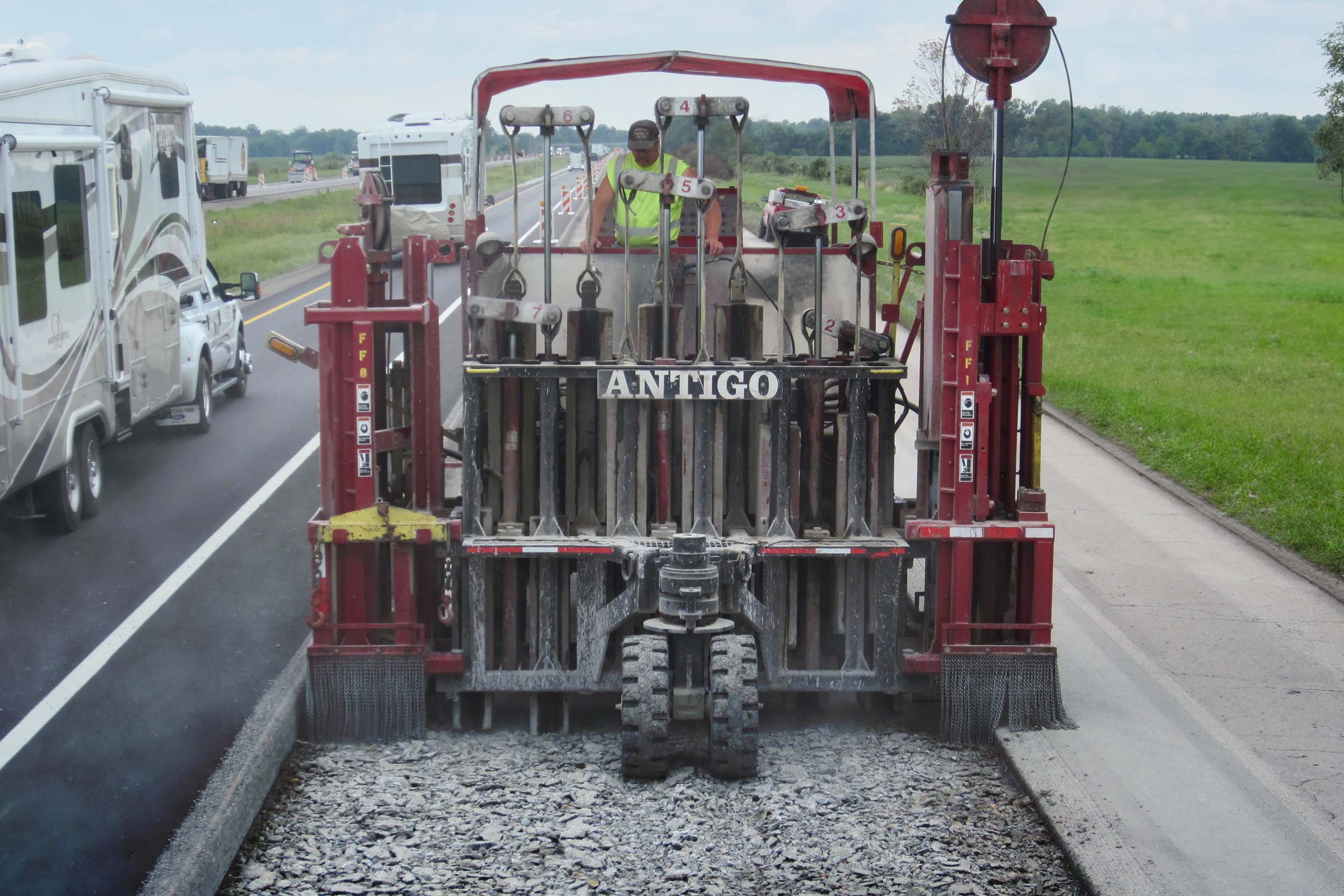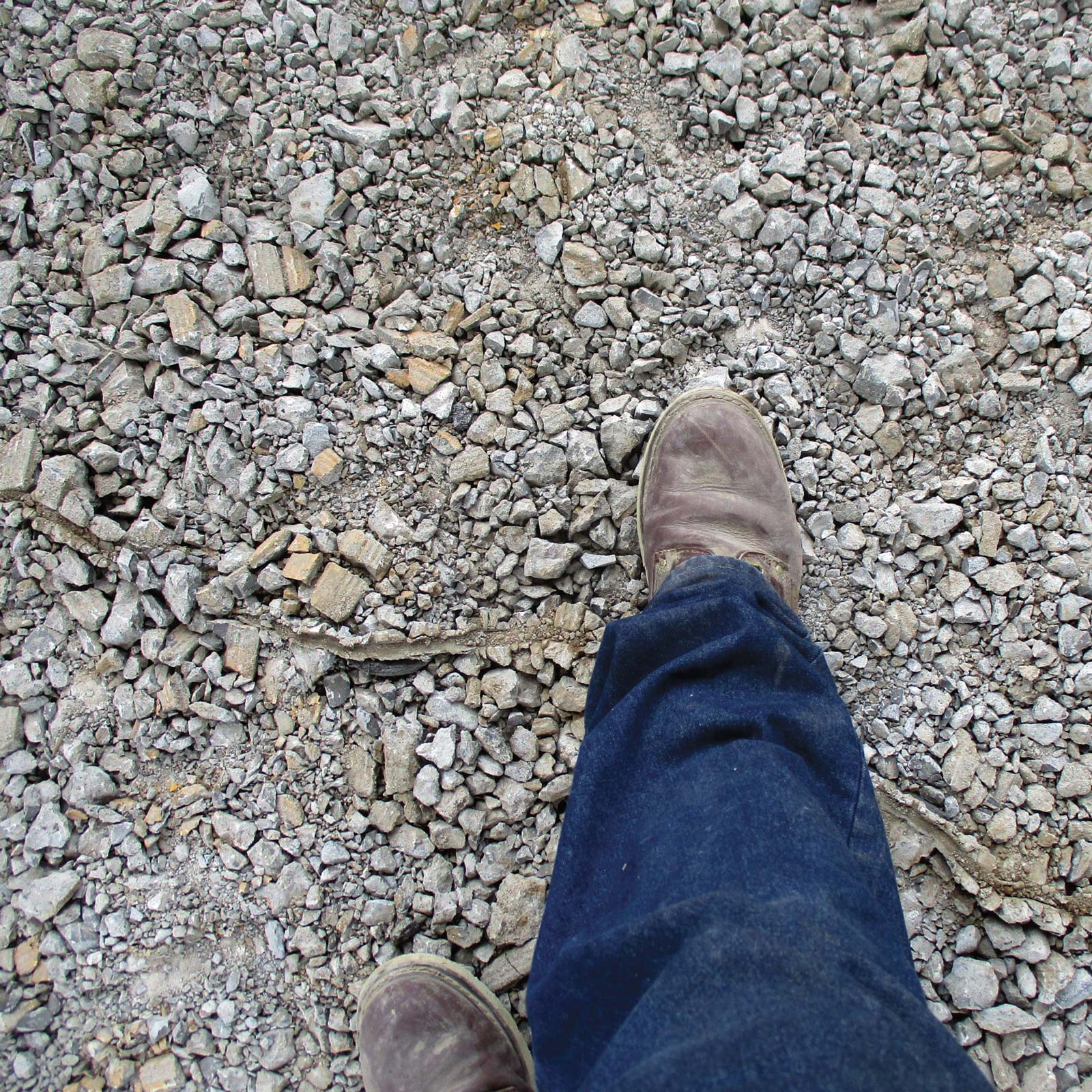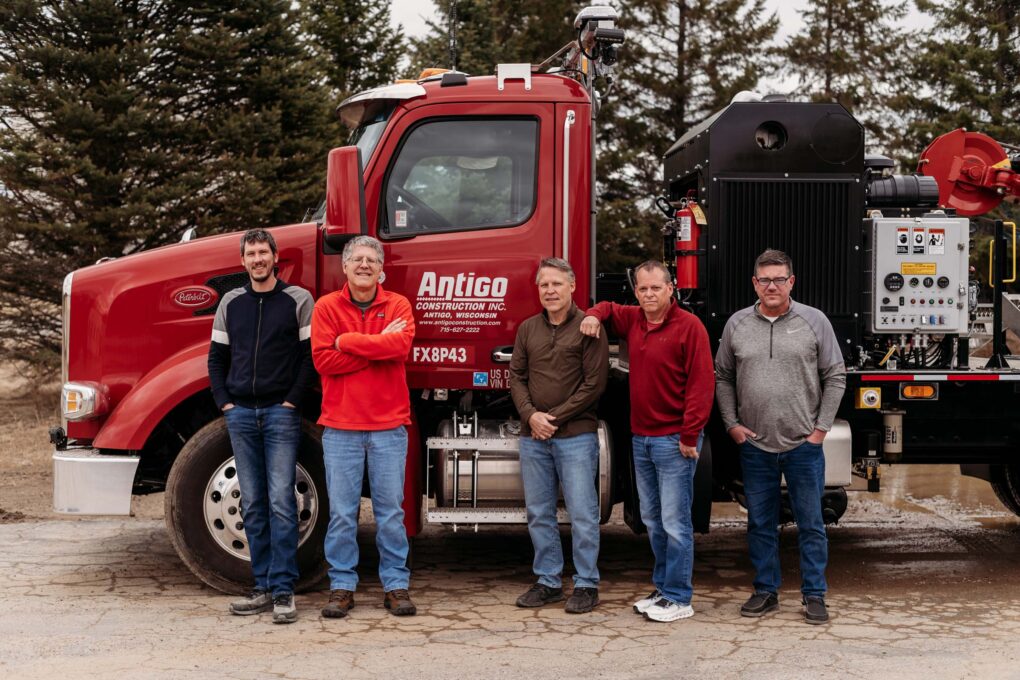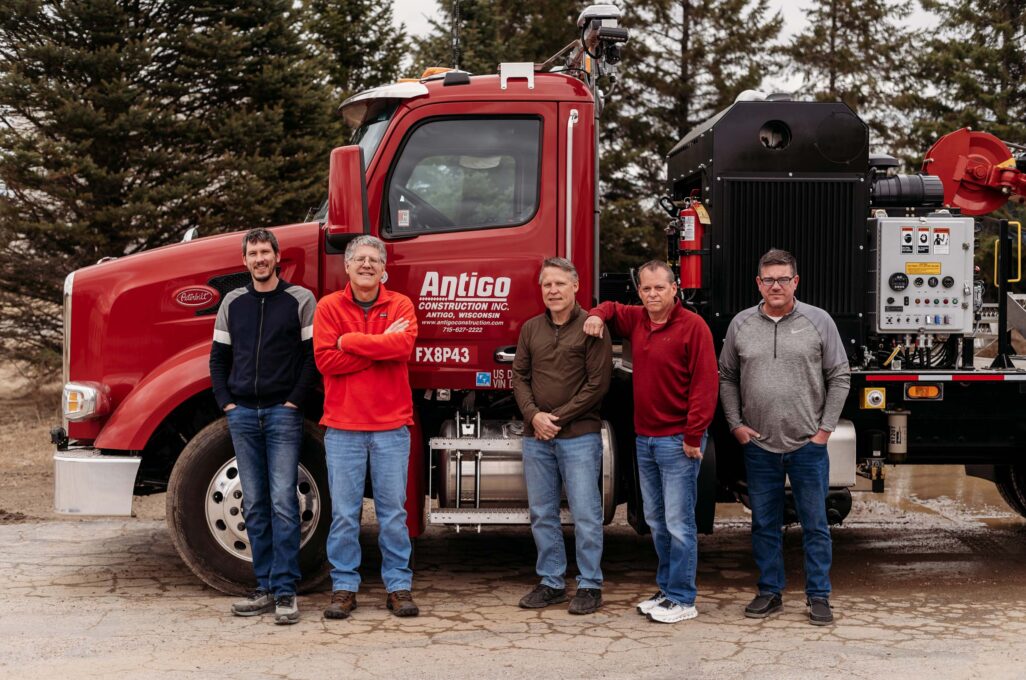It’s likely you’ve seen their trucks on the interstate. They’re readily distinguishable with their Badger-red branding and hefty concrete crushers welded to the back. The heavy machinery is designed to crack, break and rubblize pavement. They travel the globe to perform a niche service in the transportation industry that recycles worn out concrete and makes our roadways drivable. But as the bold, all-caps lettering on all sides of the semis advertises, these trucks hail from Antigo, Wisconsin.
Situated about three hours due north of UW–Madison’s campus, Antigo is a small, close-knit community in Langlade County. It was founded in 1878 and nicknamed the “gateway to Wisconsin’s Northwoods.” Thanks to the city’s proximity to lush forests, this area historically thrived during the height of the lumber industry. It also shares its name with the official state soil, Antigo Silt Loam, which has long been a boon for the local agricultural business — specifically potato farming.
Over the years, the economics of the area have shifted, but drive through the intersection of 5th Avenue and Superior Street today and you’ll still find a charming downtown with a classic movie theater and a locally owned flower shop. And two minutes down the road, you’ll stumble onto the family-owned-and-operated Antigo Construction’s humble headquarters. Humble, because it’s not every day that an internationally renowned company plants its flag in an area better known for ice fishing than city life.
“You often hear the phrase that people learn work ethic on a farm,” says Antigo Construction President Matt Shinners (’87), who majored in political science and economics when he was a student in the College of Letters & Science. “Well, you don’t have to learn it on a farm, but that work ethic, that familiarity with engines and ability to repair equipment — there’s a good base of that in our part of the state. And if someone has an interest in seeing the country, or even seeing the world, we’re able to provide excellent employment opportunities.”

Matt and his brother Chris Shinners (’88) are the leaders at Antigo Construction, cementing the legacy that their father, George Shinners (’61, MS’64), laid the groundwork for years ago when he took an entrepreneurial leap and founded the company. But to truly understand how rooted the construction genes are in this family, you must first start with the family tree of their mother, Jane Shinners (’64). Her grandfather moved to Wisconsin from Bohemia, and he had a business carving out foundations for buildings using a team of horses.
“That’s when horsepower actually meant horsepower,” Matt says with a smile.
George, who majored in psychology during his undergraduate career, learned a lot about the business working for his father-in-law’s construction company. But it was a trip to Germany in 1982 that sparked the inspiration that would lead to his thriving business. He was on a factory tour when he saw it stashed in a corner — a concrete breaker. It was the first one he’d ever seen, so he asked about it. Within a year, he was renting the German-made equipment, and by 1989, Antigo Construction was manufacturing their own to use around the U.S. and Canada. Fast-forward more than three decades later, and the Antigo-branded machines have traveled as far as South America, India, Belgium, Poland, the Czech Republic, China, Saudia Arabia and beyond. They’ve even opened an Antigo Construction hub in England to service the United Kingdom, Ireland and continental Europe.
“Our father is the one who took the big leap and bought a couple of breakers, but we’re continuing that on to make it bigger and better,” says Chris, who is an owner and project manager for Antigo Construction. “We’re proud to represent this company.”
Having an effective transportation system is a value to society. And even though in the grand scheme of things, we’re a very small part of that — we’re an important part.
And that sense of fulfillment isn’t just from Chris and Matt. Walk around the office, and you’ll hear a lot of talk from staff about how they take satisfaction in being the absolute best at what they do. You might also spot some Bucky Badger gear, since the brothers have fellow alumni David West (’91), Jason Jansen (’93) and Mark Reimer (’04) on the staff with them.
“We’re the worldwide leader in what we do, and it’s really neat to be able to work all over the country and all over the world while working for an awesome little family company like this,” says West, a project manager. “There’s really no better feeling than seeing a highway project completed,” adds Jansen, a project manager. “I like our little niche of how we break the concrete so that it can be reused in a lot of different ways and recycled,” adds Reimer, Antigo’s estimating manager.
Here’s how it works. Anyone who’s ever driven over a pothole knows that concrete doesn’t last forever. But before installing new pavement, contractors must first reckon with the old stuff. That’s where Antigo Construction comes in. Their equipment breaks down the old concrete so that it can get removed or — in the case of rubblization — broken down in place to the point that it can be recycled as a base layer and paved over.
They’re not involved in the paving of new asphalt or concrete, but the equipment needed for Antigo’s crucial contribution to the construction process is expensive to make and maintain, which is why they’re able to specialize in such a specific service. And concrete is everywhere, from interstates to airport runways to military bases. Once Antigo Construction even took a job for the garage where the president’s plane, Air Force One, gets stored.

“Having an effective transportation system is a value to society,” says Matt, whose son now works for Antigo Construction, making it a three-generation family company. “And even though in the grand scheme of things, we’re a very small part of that — we’re an important part. And by doing our job well, I think we allow other contractors to produce new pavements that will last a long time and serve their communities.”
The team at Antigo Construction takes pride in being organized and efficent and in getting the job done with excellence. They meticulously track the locations and routes of their machinery, even marking up a map on the wall of their office with pins to keep tabs on where all of their staff and equipment are. The brothers credit some of the team’s success to having five Badgers on the leadership team.
“My thought is that if you get through that school, you can pretty much go on to do anything you want,” Chris says. “You’re very trainable, you have good work ethic and study habits. You have everything you need to succeed.”
The Shinners have long been supporters of the University, the College of Letters & Science and programs like the Center for Academic Excellence, which offers a six-week summer residential experience to support freshmen who might find moving to such a large campus jarring, including students from smaller communities like Antigo.
Both Matt and Chris look back at their time on campus as the place where they learned the skills needed to lead this company. They also look at their company story as an example that showcases the positive ripple effects of the Wisconsin Experience.
“Students who go to UW–Madison and choose to stay in the state help our economy,” says Matt. “We’re just one example of the value that brings to a community.”



